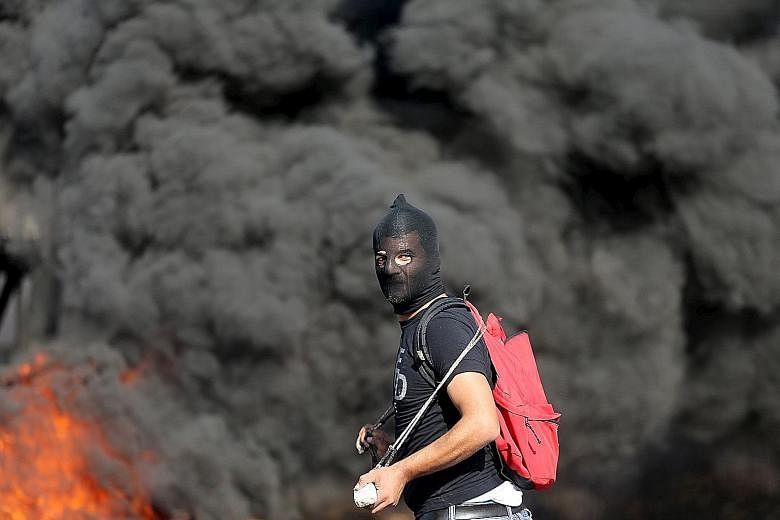TEL AVIV • Cars are double- and even triple-parked outside a gun shop in Israel's coastal city of Tel Aviv. Inside, customers jostle one another as they wait to be served.
Israelis, fearful of a rising number of attacks by Palestinians, are increasingly turning to firepower for personal protection. Seven Israelis and around 30 Palestinians have been killed in an upsurge of unrest since Oct 1, with many of the attackers wielding knives.
One man at the store does not even bother to remove his motorbike helmet or interrupt a call on his mobile as he orders and pays for a box of bullets.
"The last time the shop was so busy was probably in the 1970s. I've never before seen such stress or panic," says owner Iftash Ben-Yehuda. He is now having to ration some of his wares, estimating demand to be about four times higher than normal.
"There's been a shortage of tear gas grenades in the country for a few days, so I limit them to two per customer and give priority to women," the 37-year-old tells AFP.
Smith & Wesson, Glock and Israeli-made Jericho models top the handgun sales league, costing anything between 2,000 shekels and 4,000 shekels (S$720 and S$1,440), he says. He has also decided not to charge for weapons training "to participate in the public security effort".
"In a knife attack or a shooting, an armed and well-trained civilian can be a game-changer, neutralising a terrorist in seconds. This can mean the difference between an attack with one or more wounded and one with several people dead," he said.
Under Israeli law, apart from members of the police and security forces and private security contractors, only civilians living or working in areas deemed at risk, such as Jewish settlements in the occupied West Bank and Jerusalem, are allowed guns.
Out of a population of 8.5 million, some 260,000 Israelis hold gun licences. However, a spokesman for the Public Security Ministry told AFP that in the past 10 days, the number of gun licence applications has risen "by tens of per cent".
Israelis appear to be actively responding to appeals by officials to be vigilant and stay on the alert.
Security guards have been asked to no longer leave their firearms at the workplace, and civilians with licences have been urged to keep their weapons on them.
Jerusalem Mayor Nir Barkat is setting an example.
The former paratrooper, armed with an automatic weapon and spare ammunition, invited television crews to join him as he patrolled flashpoint areas of Arab east Jerusalem in his sport utility vehicle.
AGENCE FRANCE-PRESSE

